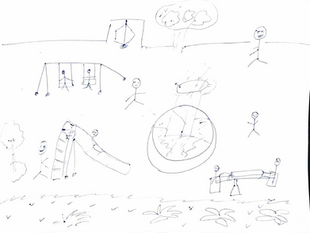
My Experience as a "Young" Academician in Management: Peeping into the Job Roles
Nov 5, 2024
4 min read
0
1
0
12 May, 2021

Image Credit: Author’s own
In the last few months, I have received emails from many students requesting for advice on pursuing PhD in management from a top business school. Most of these students envision a career for themselves in academia. This article will give some insight into the job of an academician in the field of management. The disclaimer is that the views are strictly personal, but they will definitely resemble experiences of people, both living and dead. My exposure is limited to the Indian context and my experience is close to only a decade, hence, I use the word “young” in the headline of this article. I believe that youthfulness is definitely a choice, especially if we ignore the physical deterioration. Academia is one profession where being with the youth and the opportunities to remain youthful are in abundance.
An academician’s job today usually involves the following: teaching, research, consultancy and training, and administrative work.
As far as teaching is concerned, you will enjoy it thoroughly if you like reading and writing. In case you do not like either of these, it is better not only for the students but for your peace of mind, not to become a teacher. To me, good teacher is a good storyteller and in the field of management, you have to tell stories that make an impact. The initial few years are challenging because one’s knowledge is limited. With experience, one’s craft improves, like that of a musician or an actor, as one is able to understand things from an interdisciplinary lens and analyze issues both in length and breadth. If you perform well in the class, your spirits will be high. Even if the students do not know, you will always know. It is similar to how a singer knows where she was out of tune. Attending classes of awesome professors, some available online, will improve your teaching by leaps and bounds. However, all the teachers are not same. Some are born to be teachers; some become teachers by accident.
Along with teaching, research will also be an important part of your job. You will be expected to present original research work in conferences, as well as publish it in good journals. With a full time job, it becomes nearly impossible to conduct research continuously, especially if you work with primary data. You will do well if you are a team-player. So, having access to a good network for collaboration and smart PhD students will be a blessing. This is where your PhD alma mater becomes critical because it gives you access to your network and working in a University system with sufficient funding for scholarships will help you in getting good PhD students. With time, the lack of application of research will frustrate you. But you will have to meet the minimum requirements set by the institute.
The third important element of your job description would involve shouldering some administrative responsibility. This could include time-table setting, heading different committees, coordinating guest lectures, managing the incubation cell, handling examinations, admissions or placements, organizing outreach events and so on. To be a good administrator, you must have conceptual and human skills for planning and executing tasks by making people work. You must also understand rules and their interpretation, along with the process of documentation. You will also need to be courageous in handling conflicts and have the ability to let go individual interests for organizational goals. This might also affect your personal relationships. You will have to be equally firm and polite. Some people have a hard time in handling administrative duties, but it is more or less a compulsory requirement in most of the institutions.
Another important aspect will be consultancy assignments in the industry and the government and opportunities for training. Your personal network and the credibility of your institution in the market will be very important determinants of whether you will get access to such assignments or not. Most of the projects and training programmes eventually come to you as a result of your networking. Initially, it would be very helpful if you work under the mentorship of a senior faculty member with a lot of experience in this domain.
Apart from these tasks, your job will involve meeting and greeting visitors, having conversations with your colleagues on academic issues, current news, politics – national, international and office level, student meetings- sometimes as a teacher and sometimes as a mentor or problem solver, representing the institute in the local HR Summit or Management Conclave or AICTE, AIMA, UGC meetings etc., delivering guest lectures at other institutions and so on. Tea or Coffee will be an important part of these roles.
As times have changed, an academician's job has changed drastically. My father used to spend most of his time in reading books, teaching and having conversations with his colleagues over a cup of tea under a Banyan tree in his college. Expectations from the new century academician have multiplied. However, if you have an opinion about most of the things around you and a natural talent for story-telling, research intrigues you even though it doesn't change the world, some administrative work and office politics doesn't bother you, you are good at networking, and tea doesn't cause you acidity, you are definitely made for this field.





